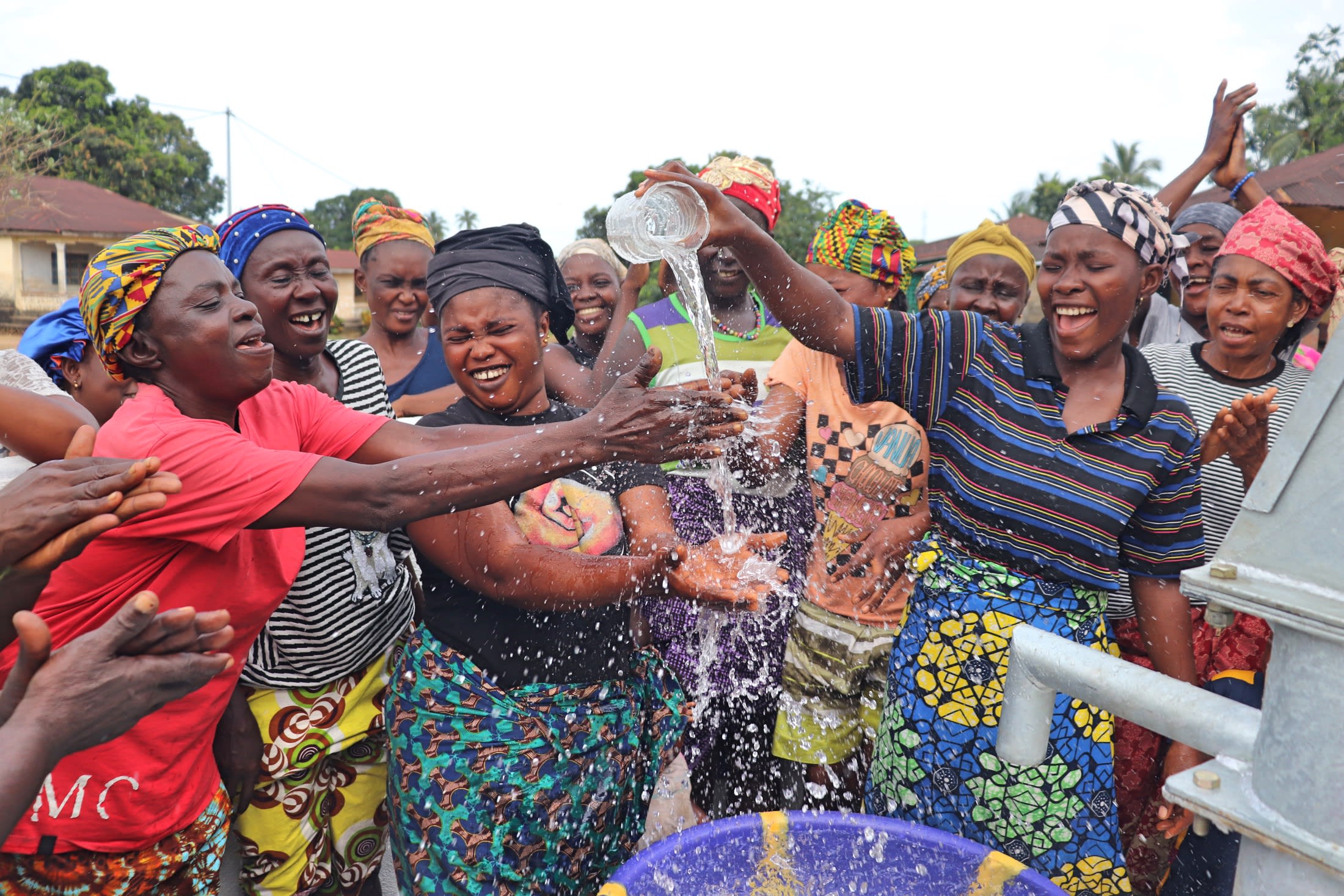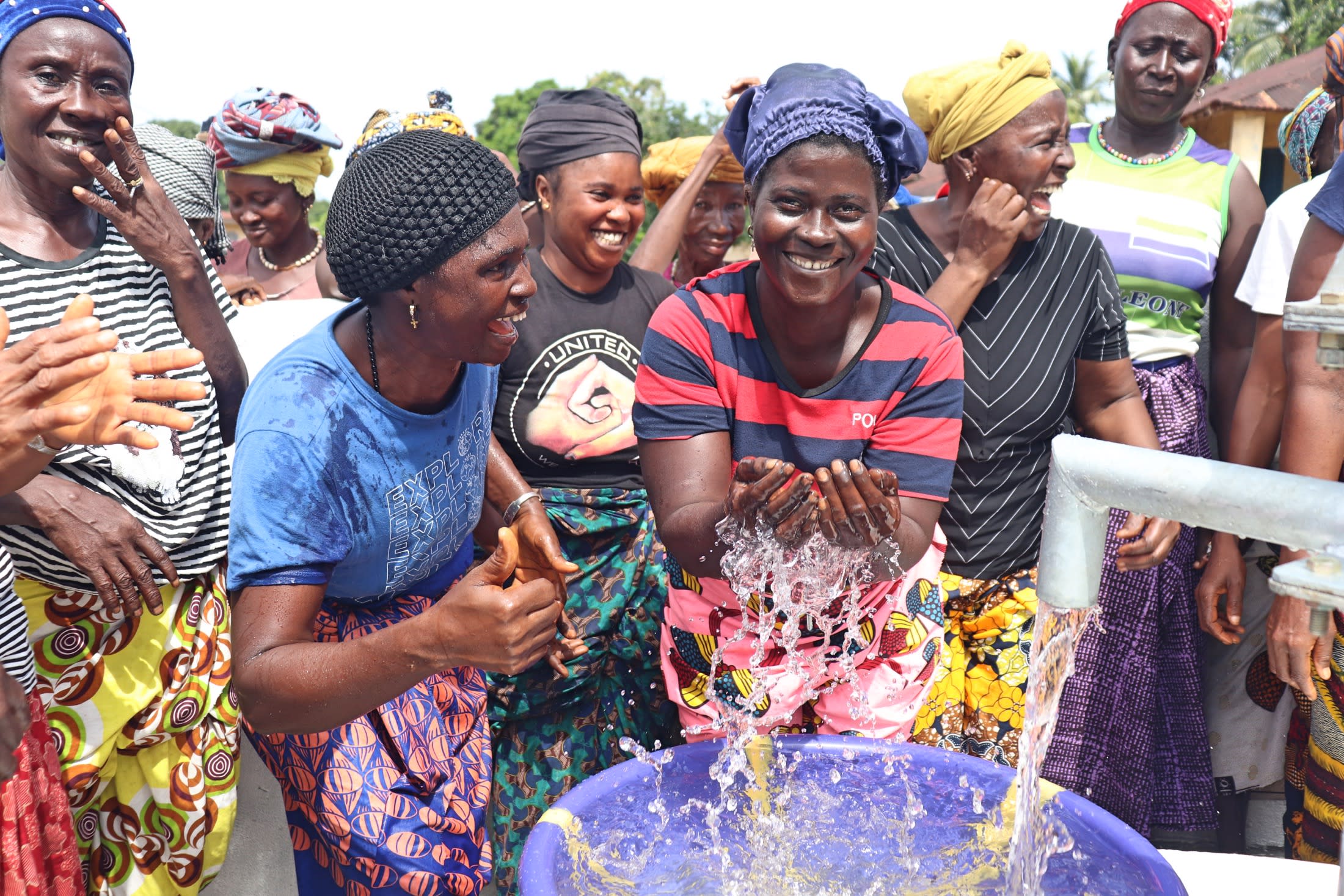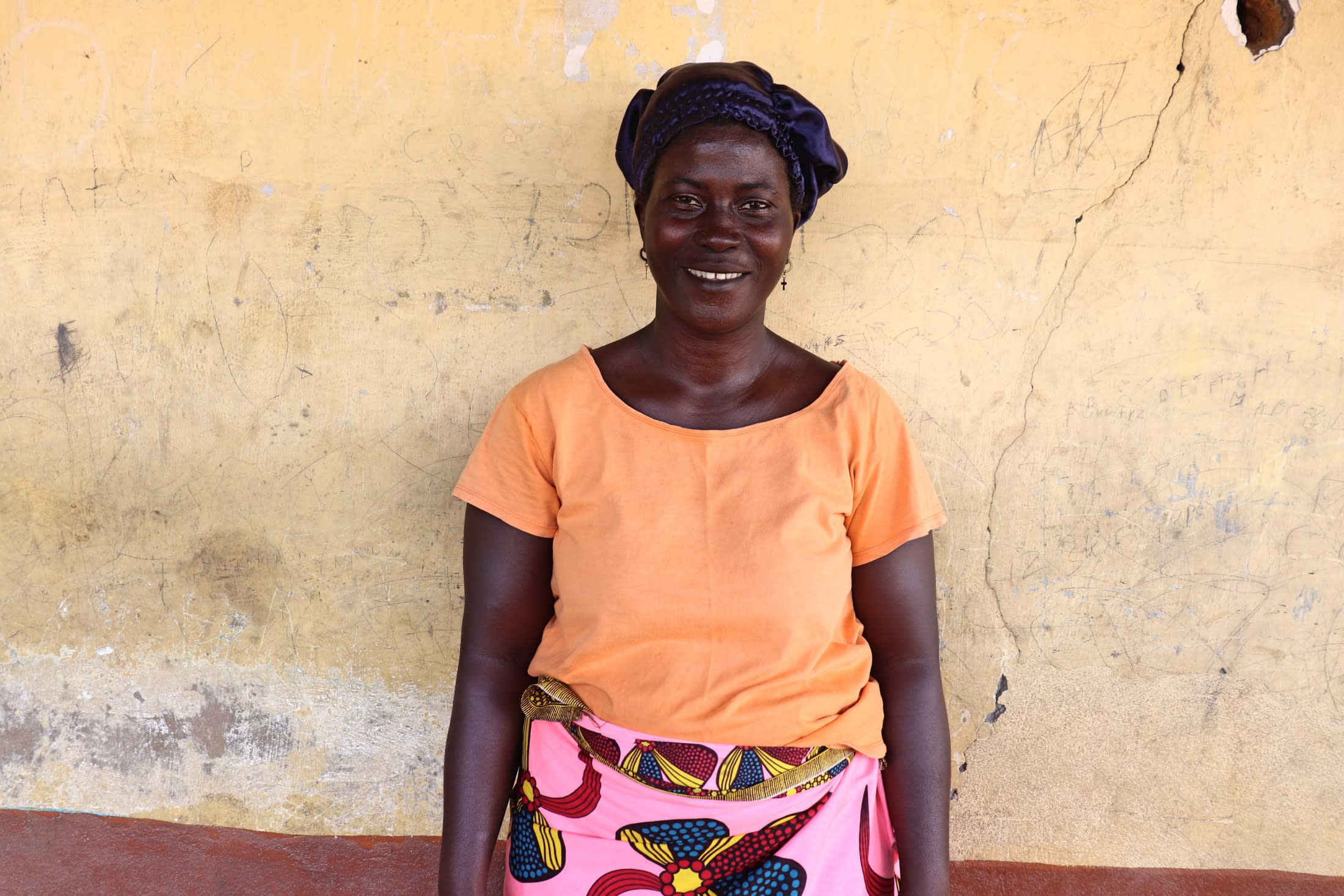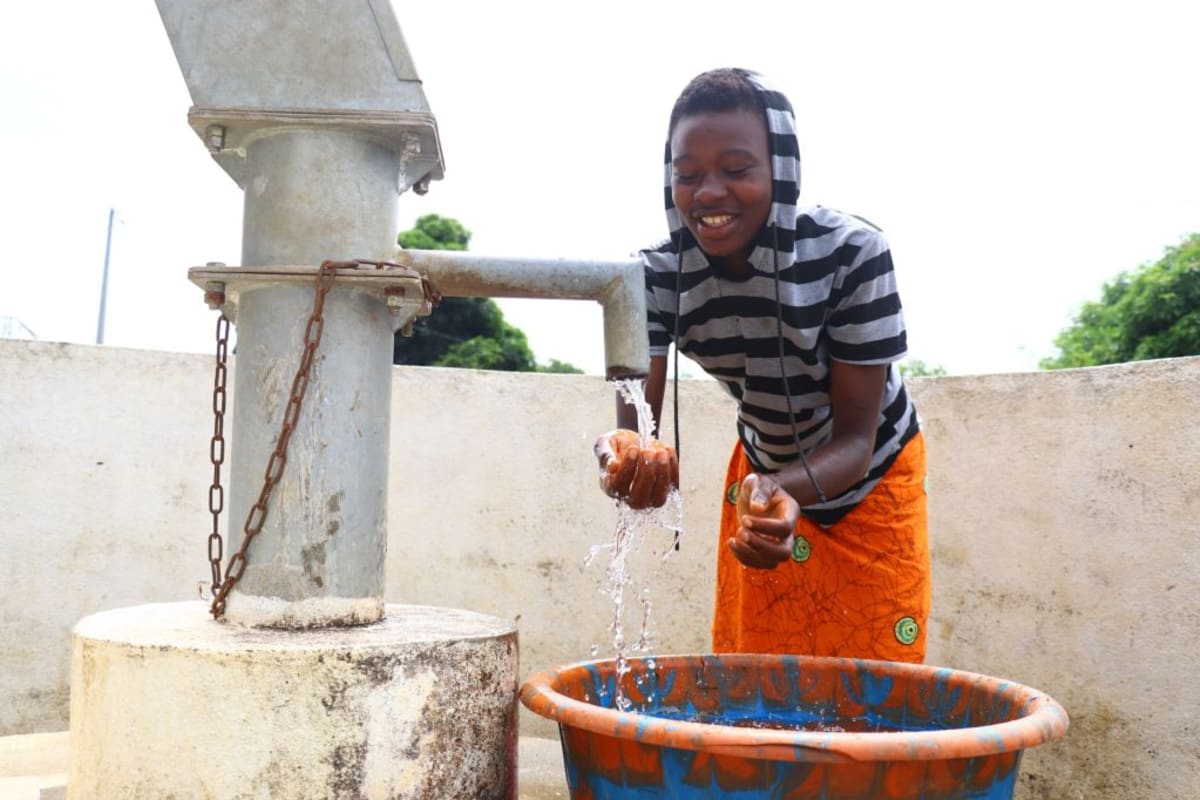No one in Mahera can complete their tasks without water. And for this community of 660 people all sharing one well, to say that getting water every day is a struggle is an understatement.
The community's second well at the local mosque broke down almost two years ago at the time of writing (September 2022). This means that there are almost always lines at the public well.
"It is very difficult for me to complete my daily activities," said 42-year-old farmer Neneh Kamara (in the photo below).
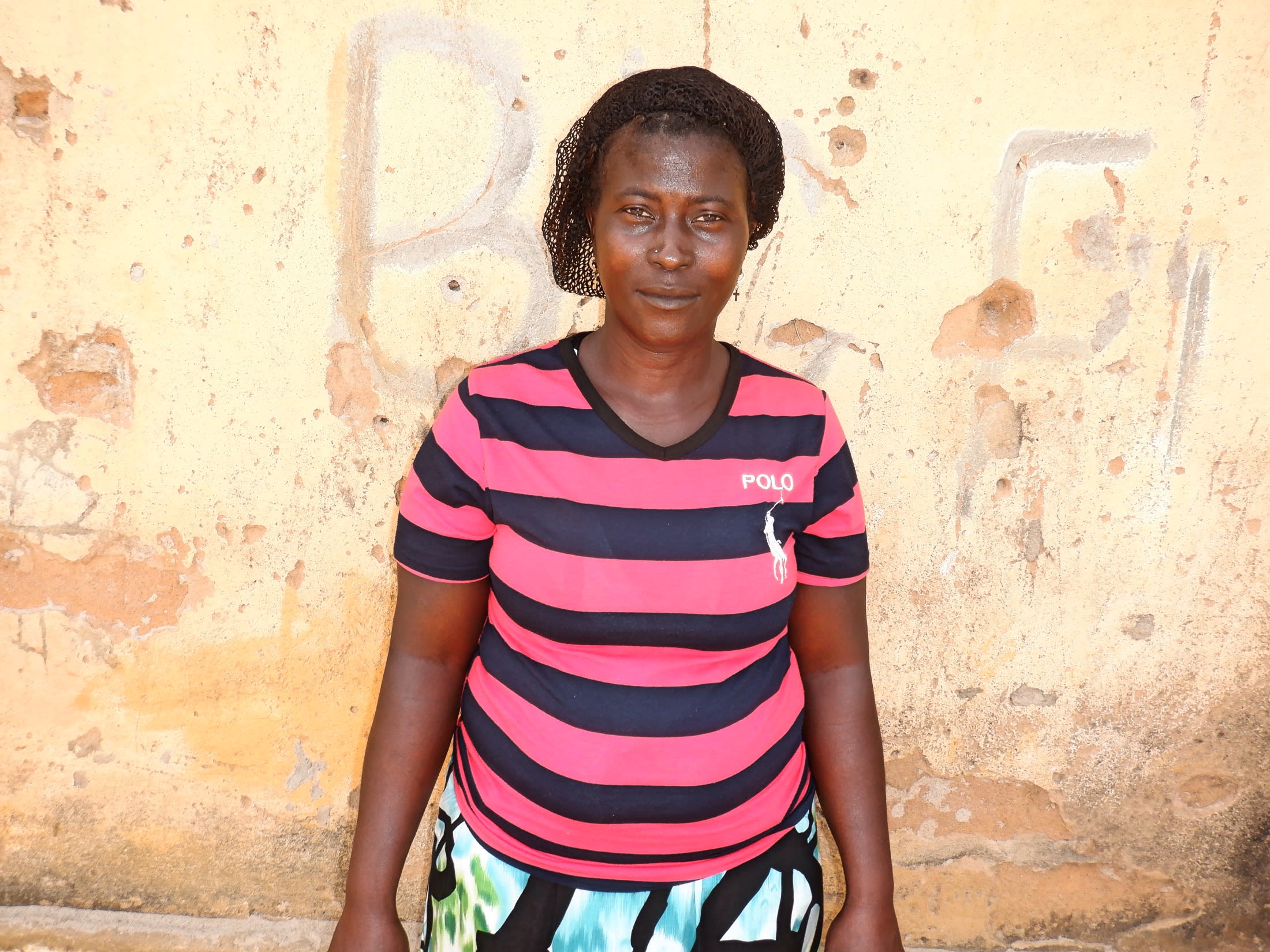
"Most of the things I do every day cannot be done without water. I need water for all domestic purposes, such as cooking, laundering, drinking, etc. Most of the time, I would not be able to get the required amount of water I need. There is always a great demand for water from everyone in this community, especially during the morning and evening hours."
There are other water sources in neighboring communities within this populous region, but those sources are not only far away, but they force users to pay a water fee with each water container filled. This is not only an added expense, but it's exceptionally frustrating for people like Neneh who already paid for water from the community well.
"The competition to fetch water from the well [is] unbearable," Neneh said. "The payment to fetch water is also affecting me. Most times I would not be able to fetch the amount of water I already paid for. This is frustrating because the money used to fetch water would have been used for other purposes."
Sometimes, 15-year-old Assanatu (in the photo below) goes to fetch water in the morning only to turn around and come right back home upon seeing the lines of people so that she won't be late for school. But this means she'll have extra work to do once she gets home.

"Immediately [when] I get home, I must fetch water and help my mum to wash the cooking utensils and dishes that I left unwashed in the morning," Assanatu said.
"Honestly, it is not easy to get water from the pump in the evening hours because most of my friends and other people would already be at the alternate water point. I will wait until I fetch water before leaving. Sometimes I would not get enough water because there were other people at the pump also waiting to fetch water. By the time I finish, I would already be [too] tired to even help my mum in the kitchen."
"Most times, I end up laundering my school uniform late at night because of water constraints," Assanatu continued. "This will make it difficult for it to get dry. I only have one pair of uniforms so I must launder every day after school. It is really a burden to me. That is why I would be happy if we could have another functioning well. All these unnecessary water constraints will be reduced."
Here’s what we’re going to do about it:
Well Rehabilitation
The well marked for this overhaul is dry for a few months every year and needs major work to supply adequate, clean water to the community year round. The pump will be removed, and a hand auger will be lowered inside and powered by a drill team. This hand auger will allow the team to drill several meters deeper to hit a sufficient water column that will ensure the well supplies water throughout all seasons.
As the team drills, casing will be installed, transforming the bottom of this hand-dug well into a borehole. PVC piping will connect this lower system directly to the pump, a construction that we know will also improve the quality of water.
Once this plan is implemented, everyone within the community will have access to safe drinking water in both quality and quantity, even through the dry months.
Hygiene and Sanitation Training
There will be hygiene and sanitation training sessions offered for three days in a row.
After our visit, the hygiene and sanitation trainer decided it would be best to teach community members how to build a tippy tap (a hand-washing station built with a jerrycan, string, and sticks). They will use these tippy taps for handwashing demonstrations, and will also teach about other tools like dish racks and the importance of properly penning in animals.
These trainings will also strengthen the water user committee that manages and maintains this well. They enforce proper behavior and report to us whenever they need our help solving a serious problem, like a pump breakdown.

 Borehole Well and Hand Pump
Borehole Well and Hand Pump









